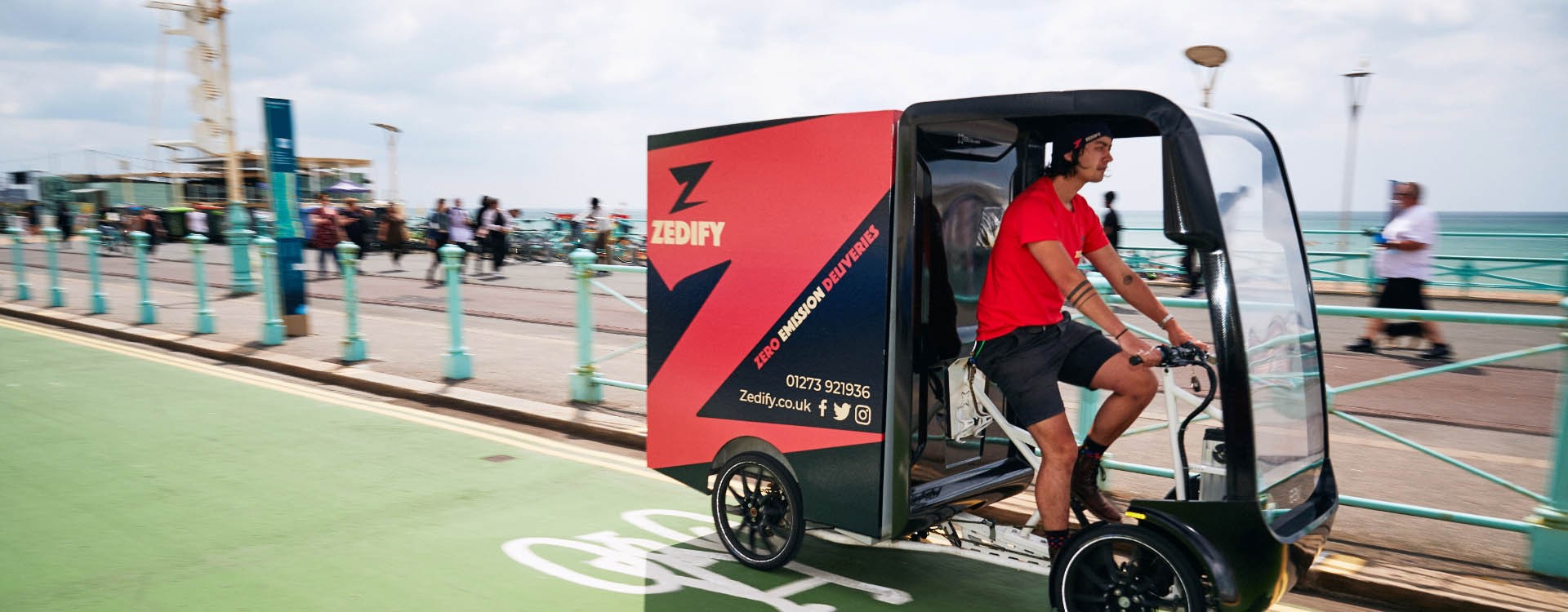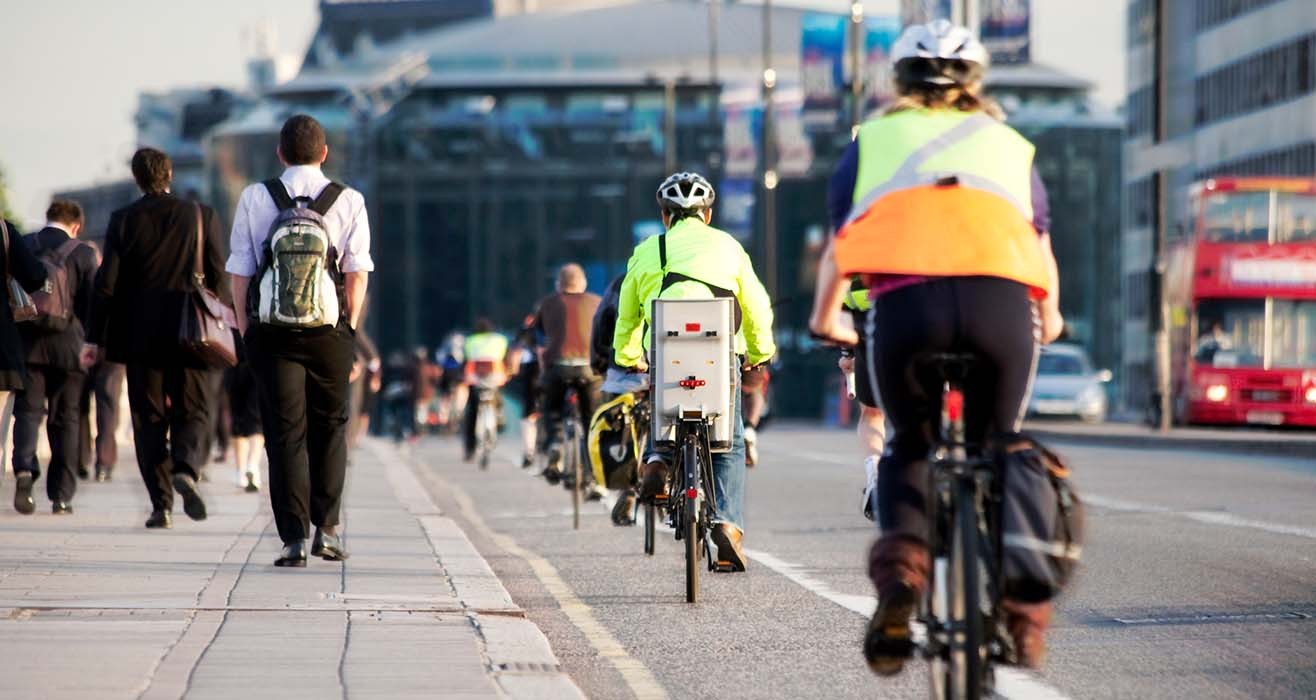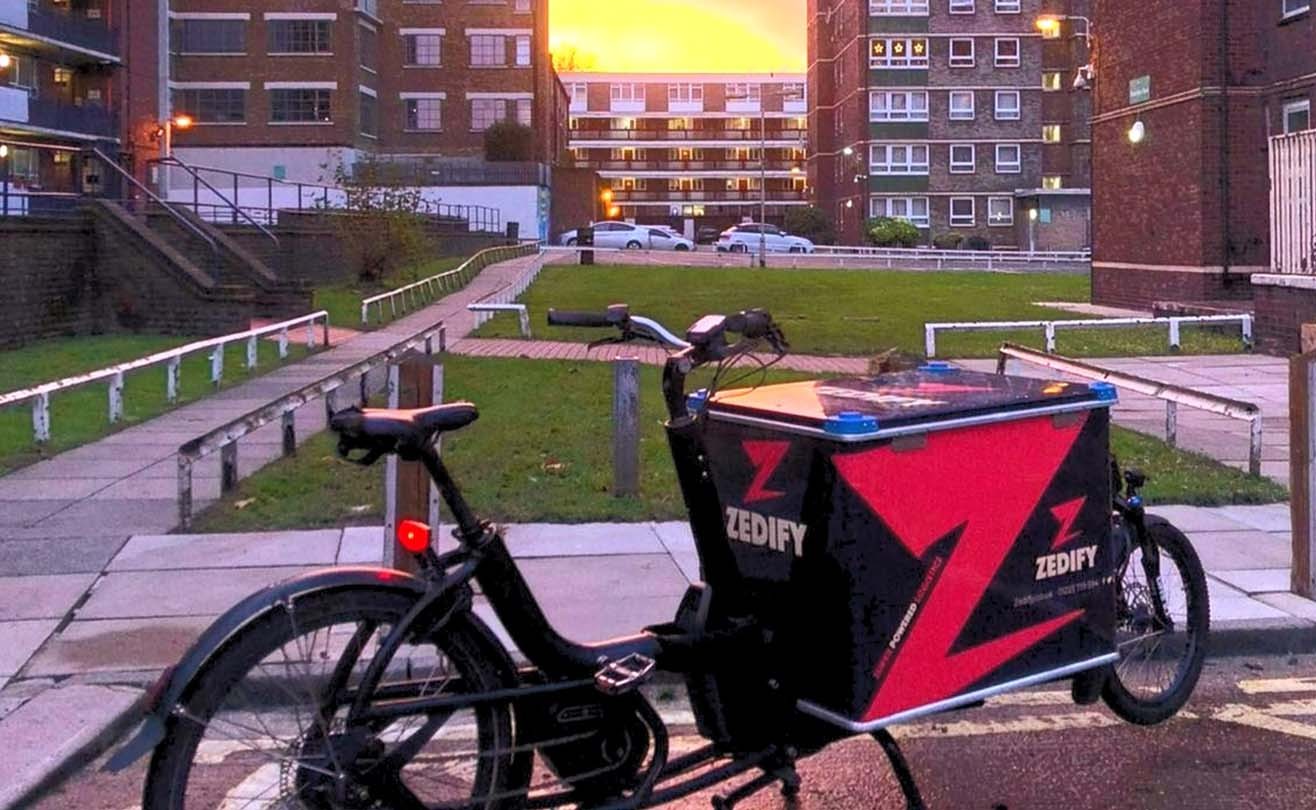Zedify’s Commercial Director, Suzanne Blake, spoke today at the Active Travel Summit on the role of cargo bikes in creating a cleaner urban freight model for better air quality and more liveable cities for us all. Organised by Connected Places Catapult, the panel included speakers spanning micromobility, green logistics, and policy leaders. Here’s the Zedify viewpoint from Suzanne on some of the key questions raised at the event.

How can e-cargo bikes play their part in creating more people-friendly and less air polluted places?
Zedify was established with a clear mission: to make our cities more liveable. Contributing positively to more people-friendly, less polluted cities has underpinned our business strategy from the very start, 16 years’ ago.
We rejected the gig economy in favour of being a Living Wage Employer which means that our riders are well looked after and have secure incomes. We firmly believe this security translates to better, more people-friendly cities as in turn our riders provide us and our clients with a higher quality of service. Furthermore, they are healthy and happy as the physical activity of using a bike, even with the addition of an electric motor, is beneficial for their health, and anecdotally there is evidence that e-cargo bike riders take less sick leave than other delivery drivers.
We operate locally run franchises so we are hiring directly from and investing in local urban communities. This is where our clients are based, and it means that rather than a cold, impersonal delivery experience they might get from a big carrier operating diesel vans, they get a friendly Zedify rider who is part of the fabric of their community. Our riders takes pride in their job and genuinely want to provide our clients with a unique doorstop experience.
With regards to creating less polluted streets, the evidence that e-cargo bikes play a positive role is all around us. A huge increase in e-commerce, due in part to Covid but also because of shifting consumer habits, has led to the exponential growth of urban deliveries. Around 450 million parcels were delivered in London alone in 2020 and demand will continue to rise. Urban last mile delivery is predicted to grow 78% by 2030, leading to a 36% rise in delivery vehicles in inner cities. In 2020, 33% of those deliveries could have been done by e-cargo bike. Recent TfL-commissioned research showed vans in London are relatively poorly-utilised: 39 per cent are less than one-quarter full with an average payload of 38 per cent (about 300 kg) which is almost the same as the capacity of one of our large e-cargo trikes. This proves that by opting to use e-cargo bikes, companies are actively removing polluting vans from our city streets making them quieter, less polluted and more pleasant to be on. And this matters because the knock on effect on the public’s health from air pollution, caused in the main by city transport and freight, is serious – with dementia, asthma, heart attacks now all being linked to air pollution.
As the largest cycle logistics network in the UK, operating a fleet of cargo bikes, trikes and EAVs in 9 cities, we have a key role to play. Last year we delivered 600,000 parcels and saved 120 tonnes in carbon emissions. Our plans for growth are ambitious and we’re committed to playing our part in making cities better.

What are some of the current innovation barriers to rapidly growing the use of cargo bikes and non-standard cycles?
There are several innovation barriers. Firstly, there needs to be a complete overhaul of the traditional logistics system. While innovation in cargo bikes is important and welcome. We need to look at innovation in urban logistics at the city level. A Systems Approach is needed, there are far too many point-to-point deliveries in our cities, and merely switching to e-cargo bikes misses a wider opportunity to consolidate both inbound and outbound freight. At Zedify, we have three broad innovations that enable this – cargo bikes, microhubs, and our tech – they’re ALL needed to reimagine and reconfigure the urban freight landscape.
Secondly, scale. Most LEFVs are made by very small manufacturers with poor economies of scale. Manufacturers need more R&D budget, they need investment and larger orders for the economy of scale to trickle down into unit prices that are competitive. We are only just seeing this start to happen – which is really exciting.
And lastly, the EAPC regulations are a Europe-wide framework that stipulate the maximum weight and level of electric power assist to ensure that cargo bikes are classified as e-bikes rather than mopeds for example. They are overly restrictive and were designed for personal mobility, for commuting, and were not designed or intended to be for light electric freight logistics use. It is like trying to fit a square peg into a round hole. It is not possible to fit into a regulatory envelope and simultaneously ensure e-cargo bikes are as competitive as possible and capable of providing the full range of benefits (like healthy active jobs and contributing to lower congestion). There needs to be a different technical framework around how e-cargo bikes are specified and built in order to make them fit for purpose.
What balance do you see between access and ownership of cargo bikes and LEVs?
Our mission is to make cities more liveable – as a logistics company “better” means enabling sustainable, more ethical deliveries. We welcome any and all types of cargo bike usage and want to encourage wider collaboration across the whole micromobility and transport sectors in order to realise our full potential in tackling urban congestion and pollution. We talk about passenger logistics and public transport, and then we talk about freight transport, and cycling in isolation. We need to stop thinking in silos and think far more in terms of the broader system. For example, we work with Beryl and Voi supporting them with their scooter and bikes share schemes and we believe transport should be interconnected. At the moment e-cargo bike ownership is expensive (there are high costs associated with rider training, optimal fleet utilisation and maintenance). For us, as a service, it makes sense to own our vehicles as we provide access to them for a wide range of businesses. However, for personal use shared ownership is probably the best route to encourage wider adoption more quickly.

Where are you seeing the market for cargo bikes, LEVs and non standard cycles take off in particular?
In short. Everywhere.
We are a franchise operated network so we are seeing huge interest, every single day, from people across all sectors who recognise there is an urban pollution crisis caused in the main by the increase in deliveries from the dual impact of Covid and online shopping. They want know how they can make a difference and help to make their cities cleaner through better deliveries. And we know that we’re on to a good thing, because all the leading 3PLs are heavily investing in e- cargo bikes and seeking our advice and training.
But this is clearly not just a UK issue. It is a global issue. We are confident we are part of the solution but we also recognise we can’t solve these problems alone so we’ve set up a global cross-sector alliance with LEVA-EU and other global micromobility manufacturers to determine the combined potential effect, not only from cargo bikes but all forms of micromobility, on reducing emissions modelled for a scenario in 2030. Together, we will be launching our comprehensive academic study conducted by the German Aerospace Center early next year.
What we are witnessing right now is a sea change in how urban deliveries are made. It is inevitable that cargo bikes, LEVs and similar vehicles are going to be replacing conventional vans over coming years, so businesses need to get on board. It’s no longer socially and environmentally acceptable or justifiable to stick with the traditional long stem logistics model and deploy diesel or e-vans on our city streets. We are in the midst of a rapid transition, there is still an opportunity to be an early adopter but the change is already upon us and meaningful action is needed.
To find out more about Zedify’s work, you can catch up with the Zedify team today.



 September 29th, 2021
September 29th, 2021 Harriet Hird
Harriet Hird 7 minute read
7 minute read

